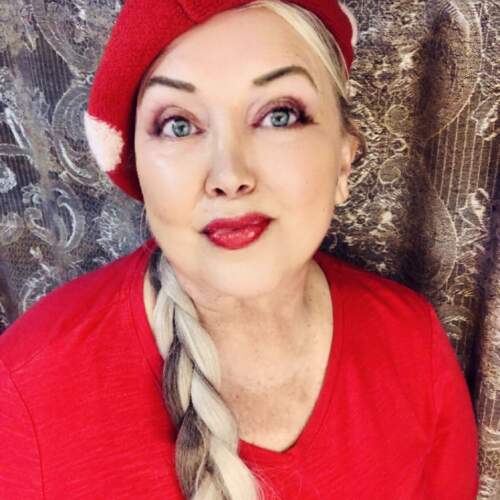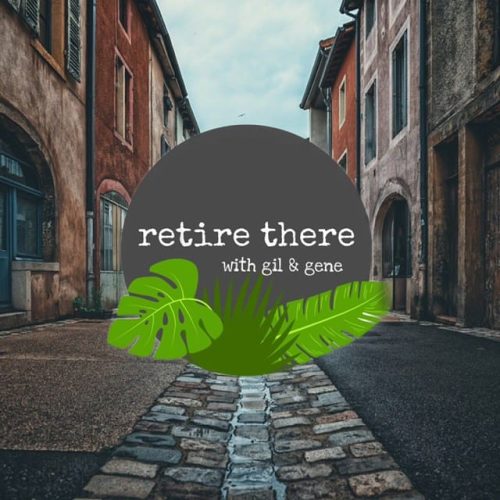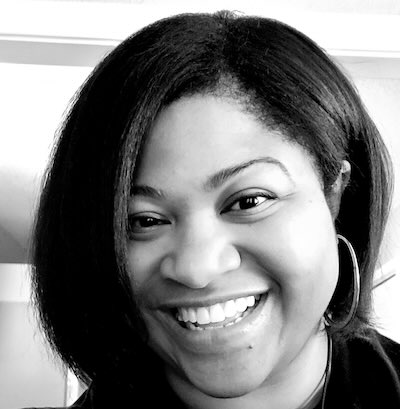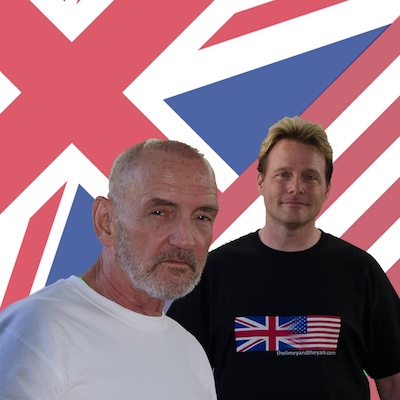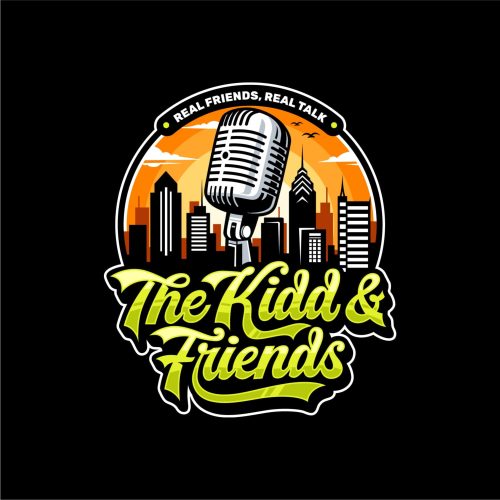Learning from Genealogy
n
My wife is an amateur genealogist. She spends her Retirement researching her extended, extended family. She is a detail person, a puzzler, a rigorous researcher, and a writer. She uses all her skills pursuing records of her long dead relatives.
n
Giving gifts to support her passion is a challenge. Iu2019ve considered books, but itu2019s like buying Sculpture for Dummies for Michaelangelo. Iu2019ve settled on tee shirts and coffee mugs with dumb genealogy jokes, which, like telling consultant jokes to consultants, must get old.
n
Genealogy is history taken personally
n
Billieu2019s favorite TV show is Dr. Henry Gatesu2019 Finding Your Roots on PBS. I sometimes join her watching celebrities reactions to unknown family stories. Children of immigrants learn their ancestors sacrifices; descendants of slaves, understand their horrific past in a visceral way. u00a0Family stories touch us deeply.
n
At dinner, Billie sometimes overflows with a story:
n
u201cI canu2019t believe what this woman went through. In a twelve year period, she lost six children and had four who lived. Then her husband died. She married his brother and then two of their children died. Then they moved from Pennsylvania to Iowa. It was the early 1800s. Did they pack a wagon or walk?u201d
n
Or sheu2019ll be frustrated with a puzzle she canu2019t work out:
n
u201cThereu2019s no record of a Robert being born. He doesnu2019t show up in the 1850 census. He is nowhere in marriage records, but hereu2019s his grave, death date 1864.u201d
n
Later, when she solves the mystery, she is like a six-year-old girl in a princess dress. u201cYou wonu2019t believe this. . . u201c
n
Side benefits for me
n
Billie did some research for my family reunion. I was amazed. For example, Iu2019d thought both sides of my family immigrated in the late nineteen century. My motheru2019s and my fatheru2019s family actually arrived in the mid-1700s. I was hooked, not Billie-level, but intrigued.
n
She bought me an Ancestry.com membership and two DNA tests; I learned more. My motheru2019s grandfather was in the Confederate Army. My fatheru2019s grandfather and his brother, mustered into the Union Army of Indiana on the same day. These Blues and Grays were in different battles, but if either hadnu2019t survived I wouldnu2019t be here.
n
My DNA tests show 1% Cherokee DNA and a little snooping on Ancestry found that my great, great grandmother was the daughter of Chief Thomas and a white woman. Chief Thomas survived the u201cTrail of Tearsu201d and died in Oklahoma.
n
My fatheru2019s family always steadfastly maintained they were English, but they were from west of the Rhine river, at various times German, French or Swiss land. I also have 3% Ashkenazi Jewish DNA, probably from that line, but I am unsure where. . . yet.
n
My paternal great, great, great, grandfather moved his family twelve miles from Hagerstown, Maryland to Franklin County Pennsylvania. Before then my last name was spelled variously Koller, Ku00f6ller, Kohler. After the move it was spelled Culler.
n
Family stories
n
There is family lore that my fatheru2019s family were Huguenots, French Protestants, persecuted in their local area. Perhaps they were followers of John Calvin unwelcome in Catholic Alsace, Northwest Switzerland, or the Rhineland. Or was the persecution in Hagerstown, a German Catholic area, before they moved to the English dominated Pennsylvania? Or both?
n
Perhaps the most famous story I know of tracking ancestry from family lore is Alex Haleyu2019s Pulitzer Prize winning book Roots: The Saga of an American Family (1976).u00a0 Haley, a writer u00a0(The Biography of Malcolm X) and screenwriter (Superfly), u00a0heard stories about his ancestor, young Kunta Kinte captured next to a kuambe belongo (river), brought to Maryland and sold as a slave. Haley used family stories, language and cultural traditions to track his family history long before Ancestry.com and Family Tree DNA. The Roots television miniseries opened Americans eyes to the horrors of slavery and the importance of oral tradition.
n
u201cI finally found you, you old African!u201d he exclaims in the final scene. Haley travelled to Gambia and found a shaman who had memorized members of the tribe. Before written language this is how genealogy, and all history, was recorded. Now we depend on family bibles, government records, family lore and maybe one genealogy u201cnut.u201d
n
Family records
n
Billie is her familyu2019s generation recorder. She writes histories and distributes them to relatives who express gratitude, but rarely read them. It is an endless, thankless task.
n
I gave her a tee shirt:
n
u201cMy work is done. I found everyone in my family tree and all my records are documented,u00a0u00a0 u00a0(said no genealogist ever).u201d
n
Occasionally, she vents about the sloppiness of some of her fellow researchers.
n
u201cHow is it possible to record a person as the mother of another person, when the birth certificate shows she was born after her supposed child?.u201d
n
You can guess who manages our home records.
n
Learning from our history
n
How has genealogy enlightened me?
n
I was surprised that my fatheru2019s stories collapsed generations. The u201cfour Culler brothers who immigrated to America and moved to Indiannau201d were four generations from the immigrants.
n
I asked Billie what she had learned. She replied, u201cthat I am a grand amalgam of many people, who all lived lives while the history we read about u2013 the founding of the country, the Civil War, the Depression u2013 was happening around them. I am, we all are, a combination of all those people.u201d
n
u201cAnd yet,u201d I said, u201cwe are each unique. We all get a slice of available DNA so my sisteru2019s reflects my fatheru2019s side and I favor my motheru2019s Scots-Irish.
n
My family history, includes people who stayed in one place and those who moved families hundreds of miles in buckboards. There are families who prospered, and some who lost everything. There are stories of heartache and resilience. And, as Billie said, Iu2019m connected to all of them.
n
Billie and I each discovered an ancestor family living in William Pennu2019s Philadelphia who may have been friends, a previously unknown connection between us. Perhaps if everyone studied genealogy weu2019d know we are all connected more than we imagine – each a unique leaf in the family tree of humankind.
“,”tablet”:”
u201cI seek dead peopleu201d
n
My wife is an amateur genealogist. She spends her retirement researching her extended, extended family. She is a detail person, a puzzler, a rigorous researcher, and a writer. She uses all her skills pursuing records of her long dead relatives.
n
Giving gifts to support her passion is a challenge. Iu2019ve considered books, but itu2019s like buying Sculpture for Dummies for Michaelangelo. Iu2019ve settled on tee shirts and coffee mugs with dumb genealogy jokes, which, like telling consultant jokes to consultants, must get old.
n
Genealogy is history taken personally
n
Billieu2019s favorite TV show is Dr. Henry Gatesu2019 Finding Your Roots on PBS. I sometimes join her watching celebrities reactions to unknown family stories. Children of immigrants learn their ancestors sacrifices; descendants of slaves, understand their horrific past in a visceral way. Family stories touch us deeply.
n
At dinner, Billie sometimes overflows with a story:
n
u201cI canu2019t believe what this woman went through. In a twelve year period, she lost six children and had four who lived. Then her husband died. She married his brother and then two of their children died. Then they moved from Pennsylvania to Iowa. It was the early 1800s. Did they pack a wagon or walk?u201d
n
Or sheu2019ll be frustrated with a puzzle she canu2019t work out:
n
u201cThereu2019s no record of a Robert being born. He doesnu2019t show up in the 1850 census. He is nowhere in marriage records, but hereu2019s his grave, death date 1864.u201d
n
Later, when she solves the mystery, she is like a six-year-old girl in a princess dress. u201cYou wonu2019t believe this. . . u201c
n
Side benefits for me
n
Billie did some research for my family reunion. I was amazed. For example, Iu2019d thought both sides of my family immigrated in the late nineteen century. My motheru2019s and my fatheru2019s family actually arrived in the mid-1700s. I was hooked, not Billie-level, but intrigued.
n
She bought me an Ancestry.com membership and two DNA tests; I learned more. My motheru2019s grandfather was in the Confederate Army. My fatheru2019s grandfather and his brother, mustered into the Union Army of Indiana on the same day. These Blues and Grays were in different battles, but if either hadnu2019t survived I wouldnu2019t be here.
n
My DNA tests show 1% Cherokee DNA and a little snooping on Ancestry found that my great, great grandmother was the daughter of Chief Thomas and a white woman. Chief Thomas survived the u201cTrail of Tearsu201d and died in Oklahoma.
n
My fatheru2019s family always steadfastly maintained they were English, but they were from west of the Rhine river, at various times German, French or Swiss land. I also have 3% Ashkenazi Jewish DNA, probably from that line, but I am unsure where. . . yet.
n
My paternal great, great, great, grandfather moved his family twelve miles from Hagerstown, Maryland to Franklin County Pennsylvania. Before then my last name was spelled variously Koller, Ku00f6ller, Kohler. After the move it was spelled Culler.
n
Family stories
n
There is family lore that my fatheru2019s family were Huguenots, French Protestants, persecuted in their local area. Perhaps they were followers of John Calvin unwelcome in Catholic Alsace, Northwest Switzerland, or the Rhineland. Or was the persecution in Hagerstown, a German Catholic area, before they moved to the English dominated Pennsylvania? Or both?
n
Perhaps the most famous story I know of tracking ancestry from family lore is Alex Haleyu2019s Pulitzer Prize winning book Roots: The Saga of an American Family (1976). Haley, a writer (The Biography of Malcolm X) and screenwriter (Superfly), heard stories about his ancestor, young Kunta Kinte captured next to a kuambe belongo (river), brought to Maryland and sold as a slave. Haley used family stories, language and cultural traditions to track his family history long before Ancestry.com and Family Tree DNA. The Roots television miniseries opened Americans eyes to the horrors of slavery and the importance of oral tradition.
n
u201cI finally found you, you old African!u201d he exclaims in the final scene. Haley travelled to Gambia and found a shaman who had memorized members of the tribe. Before written language this is how genealogy, and all history, was recorded. Now we depend on family bibles, government records, family lore and maybe one genealogy u201cnut.u201d
n
Family records
n
Billie is her familyu2019s generation recorder. She writes histories and distributes them to relatives who express gratitude, but rarely read them. It is an endless, thankless task.
n
I gave her a tee shirt:
n
u201cMy work is done. I found everyone in my family tree and all my records are documented, (said no genealogist ever).u201d
n
Occasionally, she vents about the sloppiness of some of her fellow researchers.
n
u201cHow is it possible to record a person as the mother of another person, when the birth certificate shows she was born after her supposed child?.u201d
n
You can guess who manages our home records.
n
Learning from our history
n
How has genealogy enlightened me?
n
I was surprised that my fatheru2019s stories collapsed generations. The u201cfour Culler brothers who immigrated to America and moved to Indiannau201d were four generations from the immigrants.
n
I asked Billie what she had learned. She replied, u201cthat I am a grand amalgam of many people, who all lived lives while the history we read about u2013 the founding of the country, the Civil War, the Depression u2013 was happening around them. I am, we all are, a combination of all those people.u201d
n
u201cAnd yet,u201d I said, u201cwe are each unique. We all get a slice of available DNA so my sisteru2019s reflects my fatheru2019s side and I favor my motheru2019s Scots-Irish.
n
My family history, includes people who stayed in one place and those who moved families hundreds of miles in buckboards. There are families who prospered, and some who lost everything. There are stories of heartache and resilience. And, as Billie said, Iu2019m connected to all of them.
n
Billie and I each discovered an ancestor family living in William Pennu2019s Philadelphia who may have been friends, a previously unknown connection between us. Perhaps if everyone studied genealogy weu2019d know we are all connected more than we imagine – each a unique leaf in the family tree of humankind.
“}},”slug”:”et_pb_text”}” data-et-multi-view-load-tablet-hidden=”true”>
“I seek dead people”
My wife is an amateur genealogist. She spends her retirement researching her extended, extended family. She is a detail person, a puzzler, a rigorous researcher, and a writer. She uses all her skills pursuing records of her long dead relatives.
Giving gifts to support her passion is a challenge. I’ve considered books, but it’s like buying Sculpture for Dummies for Michaelangelo. I’ve settled on tee shirts and coffee mugs with dumb genealogy jokes, which, like telling consultant jokes to consultants, must get old.
Genealogy is history taken personally
Billie’s favorite TV show is Dr. Henry Gates’ Finding Your Roots on PBS. I sometimes join her watching celebrities reactions to unknown family stories. Children of immigrants learn their ancestors sacrifices; descendants of slaves, understand their horrific past in a visceral way. Family stories touch us deeply.
At dinner, Billie sometimes overflows with a story:
“I can’t believe what this woman went through. In a twelve year period, she lost six children and had four who lived. Then her husband died. She married his brother and then two of their children died. Then they moved from Pennsylvania to Iowa. It was the early 1800s. Did they pack a wagon or walk?”
Or she’ll be frustrated with a puzzle she can’t work out:
“There’s no record of a Robert being born. He doesn’t show up in the 1850 census. He is nowhere in marriage records, but here’s his grave, death date 1864.”
Later, when she solves the mystery, she is like a six-year-old girl in a princess dress. “You won’t believe this. . . “
Side benefits for me
Billie did some research for my family reunion. I was amazed. For example, I’d thought both sides of my family immigrated in the late nineteen century. My mother’s and my father’s family actually arrived in the mid-1700s. I was hooked, not Billie-level, but intrigued.
She bought me an Ancestry.com membership and two DNA tests; I learned more. My mother’s grandfather was in the Confederate Army. My father’s grandfather and his brother, mustered into the Union Army of Indiana on the same day. These Blues and Grays were in different battles, but if either hadn’t survived I wouldn’t be here.
My DNA tests show 1% Cherokee DNA and a little snooping on Ancestry found that my great, great grandmother was the daughter of Chief Thomas and a white woman. Chief Thomas survived the “Trail of Tears” and died in Oklahoma.
My father’s family always steadfastly maintained they were English, but they were from west of the Rhine river, at various times German, French or Swiss land. I also have 3% Ashkenazi Jewish DNA, probably from that line, but I am unsure where. . . yet.
My paternal great, great, great, grandfather moved his family twelve miles from Hagerstown, Maryland to Franklin County Pennsylvania. Before then my last name was spelled variously Koller, Köller, Kohler. After the move it was spelled Culler.
Family stories
There is family lore that my father’s family were Huguenots, French Protestants, persecuted in their local area. Perhaps they were followers of John Calvin unwelcome in Catholic Alsace, Northwest Switzerland, or the Rhineland. Or was the persecution in Hagerstown, a German Catholic area, before they moved to the English dominated Pennsylvania? Or both?
Perhaps the most famous story I know of tracking ancestry from family lore is Alex Haley’s Pulitzer Prize winning book Roots: The Saga of an American Family (1976). Haley, a writer (The Biography of Malcolm X) and screenwriter (Superfly), heard stories about his ancestor, young Kunta Kinte captured next to a kuambe belongo (river), brought to Maryland and sold as a slave. Haley used family stories, language and cultural traditions to track his family history long before Ancestry.com and Family Tree DNA. The Roots television miniseries opened Americans eyes to the horrors of slavery and the importance of oral tradition.
“I finally found you, you old African!” he exclaims in the final scene. Haley travelled to Gambia and found a shaman who had memorized members of the tribe. Before written language this is how genealogy, and all history, was recorded. Now we depend on family bibles, government records, family lore and maybe one genealogy “nut.”
Family records
Billie is her family’s generation recorder. She writes histories and distributes them to relatives who express gratitude, but rarely read them. It is an endless, thankless task.
I gave her a tee shirt:
“My work is done. I found everyone in my family tree and all my records are documented, (said no genealogist ever).”
Occasionally, she vents about the sloppiness of some of her fellow researchers.
“How is it possible to record a person as the mother of another person, when the birth certificate shows she was born after her supposed child?.”
You can guess who manages our home records.
Learning from our history
How has genealogy enlightened me?
I was surprised that my father’s stories collapsed generations. The “four Culler brothers who immigrated to America and moved to Indianna” were four generations from the immigrants.
I asked Billie what she had learned. She replied, “that I am a grand amalgam of many people, who all lived lives while the history we read about – the founding of the country, the Civil War, the Depression – was happening around them. I am, we all are, a combination of all those people.”
“And yet,” I said, “we are each unique. We all get a slice of available DNA so my sister’s reflects my father’s side and I favor my mother’s Scots-Irish.
My family history, includes people who stayed in one place and those who moved families hundreds of miles in buckboards. There are families who prospered, and some who lost everything. There are stories of heartache and resilience. And, as Billie said, I’m connected to all of them.
Billie and I each discovered an ancestor family living in William Penn’s Philadelphia who may have been friends, a previously unknown connection between us. Perhaps if everyone studied genealogy we’d know we are all connected more than we imagine – each a unique leaf in the family tree of humankind.
The post Learning from Genealogy appeared first on Wisdom from Unusual Places.
Originally Published on https://wisdomfromunusualplaces.com/blog/




